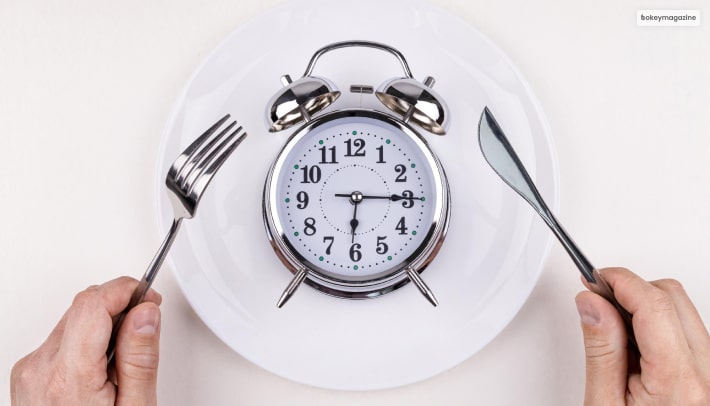
Is It Okay To Skip Breakfast? | Know The Facts Before Skipping Them
We’ve all heard the saying, “Breakfast is the most important meal of the day.” But with busy schedules and the rise of intermittent fasting, many people are questioning whether it’s really necessary to start the day with a meal. Is it okay to skip breakfast? This topic has sparked a lot of debate among nutritionists, health enthusiasts, and everyday folks alike.
In this article, we’ll dive into the science behind breakfast, explore the potential benefits and drawbacks of skipping it, and help you decide what’s best for your health and lifestyle. So, whether you’re a fan of breakfast or someone who prefers to wait until lunch, read on to uncover the truth about skipping breakfast.
Why Do You Need Breakfast?

The most significant meal of the day is frequently referred to as breakfast. Only approximately 44% of individuals regularly eat breakfast.
Your body has been fasting all night; breakfast breaks that fast. Making breakfast the night before or in the morning may benefit your mental and physical health and take five to ten minutes.
Here’s why you shouldn’t skip breakfast—
1. To Boost Your Energy Bar

The primary energy source for your body is glucose, which is absorbed and digested from the carbs you consume.
Glycogen, kept in your muscles and liver, is how your body stores part of the glucose you consume.
A well-balanced breakfast can help you start the day strong by replenishing your glycogen stores and boosting your energy.
The difficulty of duties at work, school, and home might increase if when you skip breakfast. Your brain gets the jumpstart it needs in the morning to focus and comprehend information.
An energy-boosting breakfast balanced in terms of proteins, carbs, and good fats will assist. Additionally, it gives the brain the nourishment it requires to operate correctly.
2. Marks The Start To A Healthy Day

People who regularly eat breakfast often have healthier diets and eating behaviors.
Eating breakfast has been associated with maintaining a healthy weight, enhancing focus, enhancing performance at work and school, and even enhancing mental health.
An increased risk of type 2 diabetes and cardiovascular disease can also result when you skip breakfast.
You may start your day strong by eating breakfast, which gives you the energy and minerals your body needs.
When you don’t have breakfast, your body is already famished by the time you eventually eat in the morning or at lunch. This might result in unhealthy snacking and food choices.
Quality meals, including whole grains, fruits, vegetables, lean protein, and good fats, should be consumed in the morning.
3. Helps Manage Weight

It has been shown that a crucial element in weight reduction and weight management is eating breakfast.
A nutritious breakfast will keep your blood sugar levels stable and keep you fuller longer. It can also give you the necessary vitamins and nutrients to start your day.
The body can burn more calories throughout the day if the metabolism is controlled by eating breakfast.
Foods strong in protein and fiber supply the body with long-lasting energy and vital vitamins and minerals.
When you decide to skip breakfast, you prevent your body to get the energy boost to get through your morning duties and have cravings for unhealthy foods during the day.
You may also prevent additional sugar and excessive calories by tracking your diet and reading nutrition labels and ingredient lists.
What Does Intermittent Mean?

When you follow an intermittent fasting schedule, you only eat during specific times of the day.
If you fast for a specific amount of time each day or eat only one meal a few days a week, your body will be able to burn fat.
Humans were hunters and gatherers who had developed the ability to go for long periods without eating before they found farming.
Increasing the amount of time before your body runs out of sugar and starts to burn fat is how intermittent fasting works.
Choosing a consistent eating and fasting window is the first step in any intermittent fasting strategy.
You may try eating just for eight hours each day and fasting the other sixteen.
The Science Behind Intermittent Fasting

To skip breakfast has been linked to an increased risk of type 2 diabetes and cardiovascular disease, according to certain research.
According to Freuman, those who eat breakfast are more likely to have lower BMIs and a number of improved metabolic health outcomes.
According to a meta-analysis, regular breakfast consumption may improve cardiovascular health and reduce fatalities from all causes.
However, this does not imply that every person who skips breakfast will gain weight or get type 2 diabetes.
Nutritious Breakfast Options

Here are some nutritious breakfast options that are both delicious and balanced:
Oatmeal
Cook oats with milk or water and top with fresh fruits, nuts, and a drizzle of honey. You can also make overnight oats. Mix oats with yogurt, milk, chia seeds, and your favorite fruits. Let it sit in the fridge overnight for a quick, ready-to-eat breakfast.
Smoothies
You can either make a green Smoothie by blending spinach, banana, greek yogurt, and almond milk. Consider adding a scoop of protein powder for an extra boost. If you prefer something sweet, combine mixed berries, banana, Greek yogurt, and a splash of orange juice or water.
Eggs
You can either make something simple like a veggie omelet. To make this dish, whisk eggs and cook with a variety of vegetables like bell peppers, spinach, and tomatoes. Add a sprinkle of cheese if desired. Or if you prefer fancy breakfast, make an avocado Toast with Egg. Top whole-grain toast with mashed avocado and a poached or fried egg. Sprinkle with salt, pepper, and red pepper flakes.
Whole-Grain Breakfast
If you are looking for a healthy breakfast option, make pancakes using whole-grain flour and top with fresh fruit and a dollop of Greek yogurt. Or, if you want something simple, choose a low-sugar, whole-grain cereal and pair it with milk or a milk alternative. Add fresh fruit for extra nutrients.
Chia Pudding
For a healthy and tasty start to the morning, you can make basic Chia Pudding. Mix chia seeds with milk or a milk alternative and let it sit overnight. Top with fresh fruit and nuts in the morning. For an unhealthy twist, you can prepare chocolate Chia Pudding. To make it, add a tablespoon of cocoa powder and a bit of maple syrup to your chia pudding mix for a chocolatey treat.
Breakfast Wraps
Wraps are a very convenient breakfast option for when you are running late but still want something heavy. You can make egg and veggie wrap by scrambling eggs with vegetables and wrap in a whole-grain tortilla. Add a bit of salsa or avocado for extra flavor. Turkey and Avocado wrap is another great option. Fill a whole-grain tortilla with sliced turkey, avocado, spinach, and a bit of mustard or hummus.
Quinoa Bowls
Quinoa Bowl is another simple yet filling breakfast option. You can either make a sweet or savory bowl. For a sweet Quinoa bowl, Cook quinoa and mix it with almond milk, cinnamon, and a bit of honey. Top with nuts and dried fruit. To make savory Quinoa Bowl, combine cooked quinoa with sautéed vegetables and a poached egg.
These options provide a good balance of protein, healthy fats, and carbohydrates to keep you energized throughout the morning. Enjoy experimenting with these recipes!
Nutritious Breakfast Options
Here are some nutritious breakfast options that are both delicious and balanced:
Oatmeal
Cook oats with milk or water and top with fresh fruits, nuts, and a drizzle of honey. You can also make overnight oats. Mix oats with yogurt, milk, chia seeds, and your favorite fruits. Let it sit in the fridge overnight for a quick, ready-to-eat breakfast.
Smoothies
You can either make a green Smoothie by blending spinach, banana, greek yogurt, and almond milk. Consider adding a scoop of protein powder for an extra boost. If you prefer something sweet, combine mixed berries, banana, Greek yogurt, and a splash of orange juice or water.
Eggs
You can either make something simple like a veggie omelet. To make this dish, whisk eggs and cook with a variety of vegetables like bell peppers, spinach, and tomatoes. Add a sprinkle of cheese if desired. Or if you prefer fancy breakfast, make an avocado Toast with Egg. Top whole-grain toast with mashed avocado and a poached or fried egg. Sprinkle with salt, pepper, and red pepper flakes.
Whole-Grain Breakfast
If you are looking for a healthy breakfast option, make pancakes using whole-grain flour and top with fresh fruit and a dollop of Greek yogurt. Or, if you want something simple, choose a low-sugar, whole-grain cereal and pair it with milk or a milk alternative. Add fresh fruit for extra nutrients.
Chia Pudding
For a healthy and tasty start to the morning, you can make basic Chia Pudding. Mix chia seeds with milk or a milk alternative and let it sit overnight. Top with fresh fruit and nuts in the morning. For an unhealthy twist, you can prepare chocolate Chia Pudding. To make it, add a tablespoon of cocoa powder and a bit of maple syrup to your chia pudding mix for a chocolatey treat.
Breakfast Wraps
Wraps are a very convenient breakfast option for when you are running late but still want something heavy. You can make egg and veggie wrap by scrambling eggs with vegetables and wrap in a whole-grain tortilla. Add a bit of salsa or avocado for extra flavor. Turkey and Avocado wrap is another great option. Fill a whole-grain tortilla with sliced turkey, avocado, spinach, and a bit of mustard or hummus.
Quinoa Bowls
Quinoa Bowl is another simple yet filling breakfast option. You can either make a sweet or savory bowl. For a sweet Quinoa bowl, Cook quinoa and mix it with almond milk, cinnamon, and a bit of honey. Top with nuts and dried fruit. To make savory Quinoa Bowl, combine cooked quinoa with sautéed vegetables and a poached egg.
These options provide a good balance of protein, healthy fats, and carbohydrates to keep you energized throughout the morning. Enjoy experimenting with these recipes!
Quick Options To Not Skip Breakfast

If breakfast is when your body functions the best, good starters include:
- Bananas and nuts in your oatmeal.
- Toast made with whole grains, nut butter, and fruit.
- Greek yogurt without the fat, with nuts and berries,
- Eggs with vegetables such as bell peppers, spinach, and scrambled onions.
- Whole-grain waffles topped with banana slices, strawberries, and low-fat or nonfat yogurt.
You Are What You Eat
Experts have long maintained that those who eat breakfast are less prone to overeat the remainder of the day and are thus less likely to gain weight.
However, recent research has yet to reveal a weight difference between people who skip breakfast and those who don’t.
According to well-established research, regular breakfast eaters had reduced incidences of heart disease, high blood pressure, and high cholesterol.
Most likely, those who eat breakfast also practice other good habits that contribute to their overall health.
When you skip breakfast, you’re more likely to smoke, consume more alcohol, and engage in less physical activity.
Breakfast consumption is a personal decision. Continue reading if you enjoy breakfast and believe it supports your efforts to lead a healthy lifestyle.
You don’t need to have breakfast every morning if you don’t enjoy it. Please share your thoughts on how consuming breakfast supports a healthy lifestyle.
Read Also About:



















All Comments
criac~ao de conta na binance
27 April, 2024
Your point of view caught my eye and was very interesting. Thanks. I have a question for you.
Reply